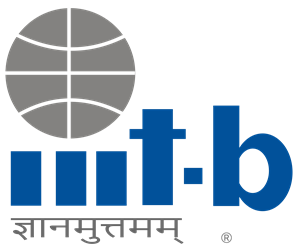Prof. Meenakshi D’Souza, Head of the Department of Computer Science and Engineering at IIIT-B, holds a Master’s in Mathematics and a Ph.D. in Theoretical Computer Science. In this special women’s edition of Naviiina, we had the privilege of interviewing her. The conversation offers a compelling glimpse into her journey as a woman in STEM and how the landscape has evolved over the years.

- When you started your career, what were some of the biggest challenges you faced as a woman in STEM?
I started my career in the year 2003, working very briefly for a DRDO lab and then in the R&D division of Honeywell Technology Solutions, in Bangalore. One of the biggest challenges that I faced was the lack of women in the core R&D team. We had a few fresh graduates working as developers, but I was the only woman in the core team. My boss once remarked, “How I wish you weren’t there so that we can be freer!”. Another challenge was to cope with starting a family in the early stages of my career. Women’s biological clock ticks very fast and post-PhD, there is a lot of pressure to have children before one is deemed to be too old to have kids by Indian standards! Duration of maternity leave was 84 days then and I had to extend my leave to be with my children till they were about six months old. Returning to full-time work is a big challenge when one has already spent about 11 years completing a Bachelors’, a master’s and a Doctorate degree, without working!
- How has the teaching and learning experience for women students in STEM evolved over the years?
In these nearly 30 years, teaching and learning options have expanded significantly. There are now many more girls pursuing engineering degrees, along with other options within STEM, such as biological sciences, pharmaceutical sciences, physiotherapy, design, and more. Opportunities are increasingly available both in India and abroad, and parents are more willing to let their daughters pursue education away from home, even investing in education loans. Career options are abundant for those who excel in academia, and the general openness in society to let daughters leave home for higher education and work has been a positive shift.
- Do you think current educational policies and industry practices are doing enough to encourage women in STEM?
Definitely. There is now a supernumerary quota for girls in the IITs, NITs, IISc and IISERs. This is meant to increase the male:female ratio in India’s top engineering and science educational institutions and has already seem tremendous success. Many girls are now pursuing engineering education, including core engineering disciplines like mechanical and civil engineering. Central and many state governments have policies on free or concessional education for girls, discounted or free travel, scholarships etc. There is (extended) maternity leave of six months, government employees get child-care leave of two years, paternity leave etc. It is a lot better now.
- Your advice on how one should handle moments of gender-based discrimination or microaggressions at work?
My opinion on this is to ignore sweepingly negative remarks discriminating against women. I would like to stay focused on being optimistic, working hard and doing our best. Women are made strong and have been managing a large(r) share of household responsibilities and their careers, it is best to let this asset grow and pass on these values to our next generation. Any positive change that happens is most welcome but complaining just increases frustration.
Microaggressions are more subtle and not welcome at all. Unfortunately, they are more difficult to overcome and are becoming pervasive, even amidst women themselves. Here again, patience and working towards one’s goals will reap rewards.
- Are there any lesser-known women in STEM whose stories you think deserve more attention?
There are many of them! Not only in STEM but in many different fields. We had hosted a Wikipedia edit-a-thon event on International Women’s Day in the past, to create content on under-represented women in Wikipedia. There are books that deal with very successful women in STEM but not all. There is also the issue of women rising to leadership positions, it is still a dream. I choose to not list or mention any names explicitly. One of my future projects is to archive the contributions of women in Computer Science and IT research landscape in India, it is slowly taking wings and will soon be done.
- Looking back, is there any piece of advice you wish someone had given you early in your career?
Yes, very much. I wish someone had told me to ask for help, both at home, in caring for children and at work. Many aspects of finance, investments and sharing of income are also compromised by women, for example, it is considered totally fine to give the entire monthly income or a large share of it to the husband or the head of the family.
- What’s the one big compliment that your male colleagues gave you in recent times, that made you feel very proud.
It took me some time to think of an answer! I received a teaching excellence award in the institute in the year 2023, it made me very happy to feel recognized for my work. I recently received the ACM India Outstanding Contributions to Computing Education award, the first women faculty member to get this award. This is another recognition that makes me happy, a reward for all the many years of hard work that I have put into teaching.

